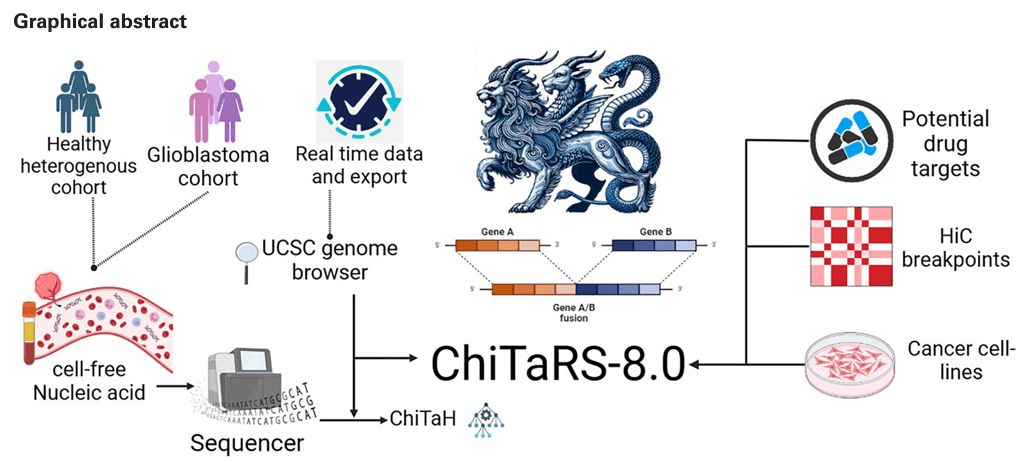Precision Cancer Treatments Get Boost From New Gene Fusion Database
ChiTaRS 8.0, the world’s largest chimeric gene database, is revolutionizing cancer research and personalized medicine by bridging genomic insights and clinical applications
Jan 6, 2025
[DALL-E]
What if cracking the code to personalized cancer treatment lies in understanding the fusion of genes—and harnessing this knowledge through the world's most advanced chimeric gene database, ChiTaRS 8.0? The Scojen Institute for Synthetic Biology at Reichman University has unveiled a revolutionary tool—ChiTaRS 8.0—that could change the game in cancer diagnostics and therapy. This groundbreaking database, developed under the leadership of Dr. Milana Frenkel-Morgenstern, is now the world’s largest collection of chimeric genes, offering an unprecedented opportunity to unlock the secrets of cancer and chronic diseases. Data on the new database was published recently in Nucleic Acids Research.

Gene fusions occur when segments of different genes combine, often leading to the formation of abnormal proteins. These proteins are not only hallmarks of cancer progression but also serve as pivotal targets for drug development and diagnostic tools. The ChiTaRS 8.0 database boasts an impressive collection of over 47,000 RNA transcripts and more than 100,000 chimeric sequences, providing an invaluable resource for researchers worldwide.
A Digital Revolution in Cancer Treatment
The ChiTaRS 8.0 database is seamlessly integrated into a “digital hospital” model. This innovative system allows real-time updates and the assimilation of new clinical data, empowering clinicians to design tailored treatment regimens based on individual genetic profiles. Notably, the database also incorporates data from the DGIdb, enabling researchers to analyze the compatibility of fusion proteins with existing drugs, including protein inhibitors targeting cancer-promoting proteins.
Professor Yosi Shaham-Diamand, Director of the Scojen Institute for Synthetic Biology, highlighted the database’s transformative potential: “The database was developed as a tool for predicting tumor responsiveness to treatments, which can improve treatment success and minimize side effects. Beyond its scientific contributions, ChiTaRS 8.0 is designed to foster global collaboration and will soon incorporate advanced datasets and AI capabilities.”
Dr. Milana Frenkel-Morgenstern emphasized the database’s role in shaping the future of cancer diagnostics and therapies: “This database marks a significant step forward in understanding and treating cancer. By adding information on FDA-approved drugs and chimeric gene expression levels, we aim to create tailored biomarkers that will redefine precision medicine.”
Toward a New Era in Cancer Research
ChiTaRS 8.0 is more than a database—it’s a dynamic tool poised to revolutionize cancer research, diagnosis, and treatment by translating complex genomic data into actionable insights for clinicians. This bridge between advanced genomic research and real-world medical applications ensures that personalized therapies are not just theoretical possibilities but practical realities for patients worldwide. By bridging the gap between genomics and clinical applications, the platform not only enhances the development of personalized therapies but also opens doors for novel drug discoveries. As it continues to evolve, ChiTaRS 8.0 promises to be an indispensable ally in the global effort to combat cancer.


















